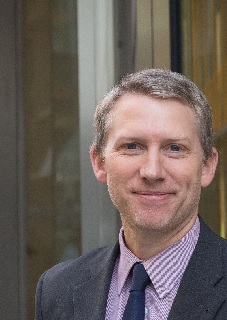How European property companies are faring in their efforts to boost diversity, equity and inclusion. BY ROBIN MARRIOTT
European real estate companies are adamant there is no backsliding on commitments to Diversity, Equity & Inclusion (DE&I) initiatives in the region.
In the US, numerous business articles have suggested that across corporate America, the sudden effort to improve diversity in the wake of George Floyd’s death in 2020 by hiring dedicated DEI officers has waned. Articles claim Chief Diversity Officers have departed and not been replaced. Meanwhile, there is suspicion that in a US recessionary environment, boardrooms might have scaled back on initiatives and strategies where once they were expanding budgets, committing to targets, and providing training and inclusion events.
However, whether that is true or not, and whether it applies to real estate companies, here in European property it does not seem to be the case.
Sue Brown, MD of the UK association, Real Estate Balance, is certain there is no backsliding. She says: ‘Here in the UK, I see no such trend in relation to real estate companies’ DEI commitments. If anything, the opposite is true and interest in these issues is only increasing.
‘From talking with Real Estate Balance’s 125 corporate members, which include some of the biggest names in UK real estate today, my sense is that the importance of gender equality is now largely well understood, and efforts are currently focusing on issues of ethnicity and social mobility. While there’s clearly lots of work still to do in these areas, UK real estate firms are awakening not only to the moral imperative, but also the business case for diverse representation. My view is that the vast majority of companies are genuinely committed to take action and improve their performance.’
In January, a global study was published providing extensive detail on real estate companies and their DEI efforts.
The 2024 Global Real Estate DEI Survey, conducted annually by NAREIM, Ferguson Partners and 19 other supporting associations, is based on 236 corporate submissions and covers North America, Asia and Europe.
It is impossible to say with empiric certainty that efforts are failing or that interest is reduced. However, the findings of the report would suggest this is not the case. Respondents were asked how DEI ranks as a priority within their organisation compared to a year ago. Some 56.8% said it is at the same level. A further 41.1% said it was higher. Only 2.1% said it was lower. That’s the global average.
In Europe, none said it was lower. What’s more, 50% of European platforms expect DEI will be a higher priority still in 12 months’ time.
More than a third of global respondents (36.3%) with a formal DEI program or some initiatives in place now have a dedicated DEI budget. That is up from 30.4% the previous year.
The study produces detail on all aspects of DEI initiatives. For example, globally, 61.1% of firms said they are broadening or being flexible on experience and educational requirements when hiring, to capture candidates that may not have had traditional paths or backgrounds. Two-thirds of companies said they are actively striving to identify gender-based pay gaps to achieve pay equity. Some 44.6% firms are taking a step further to analyse pay disparities based on race, ethnicity or age.
The Europe experience
With this data suggesting efforts are not waning, what should we make of reports that dedicated diversity officers in the US have been leaving? On one level, perhaps it should not be taken as a barometer at all.
This is because the Global Real Estate DEI Survey tells us that the most popular model is to not have employees solely dedicated to DEI.
Some 48% of respondents who completed the survey for European real estate businesses said their model was to have people with a role that included some DEI responsibilities. A further 17.7% said they had a combination of one or more dedicated DEI employees AND other employees with some DEI responsibilities within the scope of their duties.
Patrizia is an example of a company that has not hired a Chief Diversity Officer (CDO) to do everything. Instead, it is focused on an ‘integrated approach’, and its efforts are anything but waning.
Teresa Kotlicka joined as head of talent and organisational development in June 2021, having worked in various HR and diversity-related roles in the drinks, music, and consumer industries for large global organisations.
When she took up her role two-and-a-half years ago, Patrizia had already made a start on what it calls EDI (it swaps the letters around from DEI). For example, it had affinity groups in place, but chief human resources officer, Simon Woolf, wanted a more formal structure. That same year, the company set up an EDI council and put into place annual and mid-term targets.
Kotlicka has a useful analogy that punches a hole through any rigid perception about having or not having a CDO.
She says, imagine a company that is terrible at budgeting as a proxy for being terrible at diversity issues. ‘If budgeting was broken at a company, you wouldn’t hire a Chief Budgeting Officer. You would get a CFO who has the capability to move budgeting forward. And you’d even more so try to build the capability within all people to be better at budgeting.’
She continues: ‘To move us forward at Patrizia, we’ve taken an integrated approach to DEI – applying the lens on all of our people touchpoints. For instance, we run an impact analysis with performance ratings, compensation proposals, and talent designations to spot trends by gender. And when we design talent programmes or our general learning curriculum, we integrate inclusive leadership and collaboration across diverse teams as well.’
’In my opinion if we had a DEI specialist on the team, they would also suggest such an integrated approach and their subject matter expertise would bring additional value in the approach and content creation. If capacity allowed, they then could also build bespoke programmes or training for target audiences. However, if the collaboration wasn’t there or the resource was positioned to save HR practice, it would foster two-track thinking.’
This is a very important point. The danger is that ‘two-tracking’ where HR and DEI do not work hand-in-hand can lead to confusion and even to an impression that one is a luxury bolt-on.
Says Kotlicka: ‘This would be frustrating to the team and confusing to the business, decreasing the perceived value of a dedicated resource or worse, increase resistance to the speed of change in one track over the other.’
She wonders whether such tension between HR and a CDO might be one of the reasons why CDOs have reportedly been leaving across US industries. ‘It is unclear what's happened in these, but I imagine it could be a lack of integration or these companies have found a way to lead the practices from a central integrated resource like a Chief People Officer.’
CapMan, a Nordic-based private assets company with 200 people working across asset classes including a sizeable real estate portfolio, is an example of a firm where someone has responsibility for DEI in addition to a primary role. Ivan Gjoshevski is sustainability value creation manager but also leads its internal DEI working group.
Gjoshevski says CapMan set up the DEI working group at the start of 2023 ahead of a succession of initiatives. At this company, a working group, People Operations, and management work together. The ultimate responsibility sits with the CEO who informs the board of important strategy – the CEO is a woman by the way, rare for a private markets company in the Nordics. One of the other board members, Anna Bergling, is head of people and culture and has deep DEI experience.
Establishing a dedicated budget for DEI is one of the next things to happen, says Gjoshevski.
Many initiatives have already been put into place such as data collection, establishing diversity targets, employee satisfaction surveys, inclusivity surveys, and inviting relevant external guest speakers. The company has been working with recruitment firms to improve hiring practices by aiming for the final candidate pool for each position to be more diverse, and it has had some success.
As one might expect at a Nordic firm, its employee base is very homogenous, but it is trying to become more diverse. Gjoshevski says: ‘Right now we are focused on gender, ethnic background, and educational background. What we're trying to avoid is having people come in from exactly the same schools with the exact same background.’
‘We have a long way to go, and we are focusing on the short term to make sure we reach diversity targets with regards to gender. But it is not just about recruitment but about retaining talent as well – not just recruiting more diverse juniors but developing them into partners at the firm.’
Best practice
Real estate companies across Europe have made various DEI hires, and many have a considerable number of initiatives (see box). So, is there such a thing as best practice?
Oxford Properties’ associate director, Pierre-Etienne Accarier, has spotted the trend. ‘In recent years, several firms have established Diversity, Equity, and Inclusion (DEI) committees at both global and local levels that link with existing Employee Resource Groups. Some are a result of grassroots initiatives with endorsement from the C-Suite, while others are spearheaded by passionate senior leaders. It’s crucial businesses then allocate adequate time and resources to ensure these are integrated effectively.’
Oxford says it has always championed DEI initiatives. As well as well as creating its own DEI committee, the firm has engaged with several external programmes in recent years including 10,000 Black Interns, OutInvestors and Mayors Fund For London (Firm Foundation). On an individual basis, DEI efforts are included within all employees’ performance goals and there is recognition from colleagues who ‘live values’ and ‘drive impact’ for members and communities. HR management reports internally on how it has progressed against its DEI goals set at the beginning of each year. For example, how it has improved female representation across the business.
The company has numerous Employee Resource Groups under the umbrella of DEI, including multicultural, LGBTQ+ and women. Initiatives in recent years have helped emphasise the challenges of each under-represented group and the importance of helping overcome these.
Says Accarier: ‘We would like to see more DEI steering groups across industries that are able to drive impactful change, encourage idea sharing and better define best practices covering governance, recruitment and performance measurement.’
‘Clearer pathways from education to professional life, starting as early as school, would make the route into industry clearer and help identify key milestones and potential bottlenecks, as well as encouraging more mentorship opportunities.’
‘It would also be invaluable to bring younger people or institutions working with diverse groups into these discussions, which would make it easier to tailor strategies to the on-the-ground realities they currently face.’
On the issue of best practice, Patrizia’s Kotlicka points out that what works in one industry does not necessarily do so in another. ‘Everyone always looks externally for best practice, but what people forget is that best practice should be what is best for your company.’
After trialling a few engagement formats from other industries, Kotlicka learned quickly that these do not always translate successfully. Popular ideas across industries include putting on virtual conferences with a range of internal and external guest speakers.
Instead, she discovered that smaller forums centred around peer learning were particularly powerful within Patrizia’s global network. In these ‘audience-driven’ sessions, Patrizans are able to learn from each other on how to best contribute to performance and culture.
Kotlicka remarks that ‘while it’s a cliché, it always makes me think about how people don’t remember what you said, but more how you made them feel and this format makes people feel seen and heard.’
Sentiment and data
Real Estate Balance has long been driven by the belief that robust, granular data is a vital starting point in addressing inequalities. It has been carrying out its own surveys of the industry every two years since 2016. By drilling deep and investigating company and employee responses across a wide range of DEI metrics, it has built a strong evidence base that allows it to track progress, uncover key issues and identify where change is needed most.
Real Estate Balance’s Brown says: ‘The UK is fortunate in that we don’t have laws preventing us from collecting DEI data. This means companies can collect information on workforce gender, ethnicity, social mobility and other protected characteristics, which I believe is the most effective way to benchmark current performance, monitor progress and measure the effectiveness of DEI strategies.’
But quantitative targets aside, it has found that doing other things are also very useful. For example, it found that creating regular spaces and events for the UK property industry to come together, share best practice and influence each other is one of the best ways to create lasting impact.
Companies seem to agree that data is vital, but other things are necessary to make efforts successful.
Kelly Russell, head of sustainability and communication at Italy’s Coima, says: ‘We are certainly monitoring our own progress through data, but also through qualitative feedback, particularly to ensure the effectiveness of our recruitment processes when it comes to improving DE&I, as well around remuneration and promotions. It is really important that we continue to use data to monitor and then ensure that we are delivering what we have committed to do.’
The company has two key approaches. The first is ‘top down’, through identifying targets around recruitment and remuneration. The second is ‘bottom-up’, focused on supporting DE&I across the company through Employee Resource Groups. These are voluntary, employee-led groups whose aim is to foster a diverse, inclusive workplace.
In 2021, Germany’s Patrizia was collecting relevant DEI data such as women hires, promotions, and departures. But it also knew numbers alone would not tell the underlying story.
Says Kotlica: ‘The words ‘DEI data’ in themselves are vague. If it means how to check the effectiveness of any work a company does, then assessing impact is important to do quantitatively through people analytics such as the number of internal job changes, promotions and terminations after interventions and so on.’
She adds: ‘But then initiating open and honest conversations about work that happens in a more qualitative manner is equally important.’
‘For instance, we ran a series of focus groups through an external third-party provider with our employees globally when setting up the EDI Council in 2021/2022, focusing on how people felt about EDI and more specifically sharing voluntary and anonymous demographic data like sexual orientation, disability and caring status. With the chance to openly discuss these topics, we got a lot of insight around how people feel – which isn’t always captured in numbers.’
One insight was around hierarchy. In response, for the first time, the firm began a ‘reverse mentoring’ programme so that around 20 senior MDs get mentored by junior staff on topics related to what makes a company of choice such as wellbeing, ESG, hybrid working practices and EDI.
‘Knowing that access to senior members was highly desirable, this programme is helping us to forge those connections and also flip the dynamic to create a real community - in a way that the data alone could never tell us,’ explains Kotlica.
Expanding the focus
Nevertheless, data is intrinsic to benchmarking and targets. But are companies too narrowly focused? In the US, data on race, ethnicity, socio economic background and sexuality has been tracked, collected or talked about for a lot longer than in Europe. Perhaps there is still a stigma in Europe about collecting such data, plus it can be legally difficult in some jurisdictions.
Companies like Patrizia are all too aware of the need to expand targets. Last year, the firm refreshed its representation targets to be in line with the German Stock Corporation Act, and when discussing the need for these targets it always inserts a footnote that gender is just one aspect of diversity. Says Kotlicka: ‘It’s normalised and discussed more readily because it’s been de-stigmatized over time, and it’s become common place to collect gender data. Therefore, we can’t slow down and need to look at how to make progress in this space, and continuously acknowledge that the same progress needs to happen on many fronts.’
It seems that employees themselves are willing to play their part in advancing EDI. To the delight of Kotlicka, Patrizia’s voluntary and anonymous employee personal data survey exceeded expectations with the vast majority of the company contributing.
So, what is the company focused on now and what is having an impact?
‘In terms of focus, I think the increasing importance of supporting our people across all levels of the organisation is important, with dedicated programmes for people managers and early career professionals to name just two. The thriving employee resource group network is also driving a culture of inclusion and belonging, with more support for our four dedicated groups established.’
She adds: ‘We were also shortlisted as the most dynamic mentoring organisation 2022/23 within the prestigious Moving Ahead and 30% Club Mission Gender Equity mentoring scheme, which supports around 2,000 female talents each year to advance their careers across the world.’
‘In 2023/24, we will be ambassadors of this scheme. We got inspired to participate in this programme when we acquired an infrastructure business, as they had already done the scheme once and we then integrated it into the wider Patrizia, giving people the chance company-wide to look externally.’
‘Right now, we are really trying to run our own race. We see the value in looking across the sector and do so through things like the previously mentioned survey, conferences like Women in Private Markets and our participation in Moving Ahead’s Mission Gender Equity. However, it’s really dangerous to be too fixated on what others are doing at the expense of your own internal progress. To be more or less like others isn’t as motivating as making progress you can feel.’
Brown at Real Estate Balance says: ‘We want to see more women, ethnic minorities, and people from working class backgrounds represented in senior roles across the industry. To do this, we need to nurture a more diverse talent pipeline and ensure that diverse middle managers are properly supported into leadership roles.’
She highlights social mobility as one area where more work is ‘definitely’ needed. ‘Our 2022 NextGen survey of real estate professionals aged under 35 found that the industry is still largely considered a “secret sector” – meaning it’s one that’s difficult to access socially and economically. We look forward to working with our members to understand and remove the barriers to representation, creating a real estate industry that’s fairer, better-balanced and more equitable for everyone.’
Many companies are striving towards this goal. Coima’s Russell says: ‘We are focused on improving DE&I across the board, both in terms of gender, ethnicity, ability, culture, religion, sexual orientation, neurodiversity, and beyond.
‘We are sensitive in supporting specific under-represented groups, but ultimately we are focused on fostering human expression, which is a basic human right. We want to create a company culture that cultivates entrepreneurial spirit and creativity, where people can feel free to express themselves and their opinions, and where they feel listened to without being judged. That is also what it means to be an inclusive, productive work environment.’
And how does she think the industry is doing? ‘In my view the industry remains far behind others and is not catching up quickly enough. There is much work to be done. Just look at the MIPIM: is there another business event in the world on that scale that is so lacking in diversity? We all can and must do so much more, as greater inclusivity, greater diversity fosters more creativity, more innovation, better decision-making and makes for stronger businesses and the community.’
Working title
Several high-profile hires have been made in Europe, but often with differing job titles
It is interesting to observe the different structures being used at companies and the background of hires being made.
In April 2023, AXA XL announced the appointment of Trevor Gandy as global head of diversity, equity, and inclusion. He heads the human resources leadership team and leads DEI strategy by working globally with business units and regional HR teams. His background includes various roles at insurance group Chubb where he worked for 19 years in all sorts of non-related positions. But his last four years were spent as chief diversity officer, then deputy chief culture officer before joining insurer Markel as MD of talent, diversity and inclusion.
in September 2023, Knight Frank appointed Hannah Awonuga as group head of diversity, equity and inclusion. She joined from Barclays Bank, where she first worked as a sixteen-year-old in a bank branch, rising to become global director and head of DE&I Colleague Engagement. Earlier in 2023, Knight Frank appointed Karen Bowes as group chief people officer. Awonuga is tasked with providing strategic direction to the group executive and UK boards, and formulating and executing a DE&I strategy. In Knight Frank’s words, this to ‘facilitate the adoption of industry-wide best practices in DE&I, as well as develop a set of metrics to drive the agenda’.
Awonuga summed things up by posting on social media: ‘One of the biggest challenges in my career is not seeing those who look like me in senior positions. It was a challenge because it led me to believe that I couldn’t be what I didn’t see. Fast forward ten years, and I don’t believe that anymore! But lack of visible representation does so many things.’
Knight Frank’s diversity and inclusion initiatives include a ‘Meet ….’ series to introduce visitors to women at the company, business balance groups, an enhanced family leave policy, a recruitment and graduate programme, a gender identify pathway, KFX, which is cross-divisional to develop new ideas, and a Leaders for Today management training to develop skills across gender, race, faith, LGBTQ+, mental health, disability, and wellbeing.
At CBRE, the company says its commitment to DE&I starts at the top with its CEO. Banke Odunaike, chief culture officer (CCO), leads the DE&I team and is part of CBRE’s Executive Committee, which reports directly to the CEO. DE&I work across CBRE is led by a team that develops the global strategy and works closely with regional partners to deliver on the company’s ambitious and business-driven goals.
CBRE’s top three priorities are to strengthen its inclusive culture, increase the diversity of its workforce, and drive community impact. The company lists seven initiatives and achievements, plus a further six for the UK alone. They include a €3 bn commitment to spend with diverse/minority suppliers by the end of 2025, mandatory global employee training on unconscious bias, and in the UK an advisory partnership with Fertility Matters at Work, striving to become the first ‘fertility friendly’ real estate company, an apprenticeship scheme and school outreach, and menopause support including events and menopause cafes. The firm has also become a founding corporate partner to OutBritain, the UK’s first LGBTQ Chamber of Commerce.


































